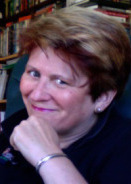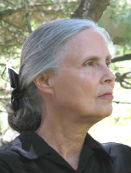Interview on Writing Memoirs - Part 3
This is the third part of our conversation about writing memoirs with Kendra Bonnett and Matilda Butler fromWomensMemoirs.com. Return to Part 1 of the conversation.
In this portion of our conversation, Matilda and Kendra discussed some of the different reasons for writing a memoir.
A Conversation with Kendra Bonnett and Matilda Butler: Reasons for Writing Memoirs

Kendra: For so many people, memoir is about making sense or understanding something that occurred in their life or even putting it to rest. So, it requires them to get inside of the events and work through it, and try and understand what went on and why it happened and is there a lesson for them? Is there a lesson for readers? I think that’s why a lot of people enjoy reading memoir -- they can be very instructive. Sometimes the stories are so horrific, it actually makes you feel better, that anything in your life has got to be better than what you’re reading. But they’re also often inspirational. There are so many really nice aspects to memoir, but reflection is really what it is all about—and being able to share that reflection.

Matilda: That is so critical. When you are in the process of writing, you’re so busy trying to capture what happened, and who were the people, and where were you and what was the setting like? There are so many things that…one of the things that writers at first do is often they leave themselves out. We don’t want to just know what happened, we want to know what you thought about that and what it meant to you, and did it change you in some way? So you always have to go back—and it is fine—you don’t have to get everything right the first time, none of us do. None of us writes once and that’s it. You need to go back. So at a certain point in the process, you have to remember to say that I am telling you about this because of a reason. That’s when Kendra likes to say, “But, what’s the point?” And there always has to be a point. Why are you telling me this? It has to be because it made a difference to you or it affected your life, or you changed because of it, or you decided to raise your children in a different way because of the way in which you were raised. Don’t just tell me about what happened to you—you know, the what—but what change did it bring about in you, or how did you feel about it? What was your reaction? It’s not just that your mother died, but how did you feel? That is an important part because the other person who is reading says, “Well, why are you telling me this?”
So that takes us on to the readers. You can write a memoir for many reasons. You can write it for yourself, and that is an extremely valid reason to write a memoir. Because, as Kendra says, what you’re doing is sense-making. You’re looking back at your life. We have a LinkedIn Group, Women’s Memoirs, and someone that joined us maybe yesterday just said, “I’ve spent all this time dealing with the outside part of my world, and it is now time for me to exhale and to start just looking and thinking about my life inside of me.” And so, if you just write for that reason, to begin to reflect on your life, that is still a memoir and it is a perfectly valid use of it.
Now, some people want to write for their families, for their children and grandchildren. They say, “But, someday I will be gone and I want them to know the things that mattered to me -- and how I became the person I am and why I did certain things.” To write for your family is another valid reason, so that that document can always be around for future generations to know about this grandmother, great grandmother, or great-great grandmother and to know what she was like. And in fact, sometimes when people come into classes and they’ve got journals from grandmothers and great-grandmothers, it’s just incredible—their life and what it was like. That is more journals than memoirs because people didn’t do memoirs about their lives then. But it is a kind of documentation.
If you want to do it for that reason, that’s also a very valid reason and does not in any way negate the importance of writing it well. If you want someone to read it, you still have to have it well-written. If it is written in a very sloppy way, then odds are that person you would really like to read it in the family may never get through it and read it. So, it still calls on our skills as writers with the audience. Then before one gets out to try to get it published, there is also a group of people that would be bigger than your family but smaller than the world. And sometimes people have had experiences that would be relevant for a certain other group of people, and you so might think of it in a more narrow sense.
One woman in one of my classes had gone on several groups from one of her churches to do missions, and she really wanted to be able to share those experiences with other churches. So she was going to write her memoir with the thought that it would only be available really in the various churches that would find her experiences might helpful…to know what it would be like if they were to go and do that. And she didn’t ever really view the memoir as a broader one to be more widely available. So you may have had a set of experiences that you can see that a certain group of people would find valuable to them, and then of course there would be publication, for anyone to read. All of those are valid.
Kendra: There’s another reason some people are using memoir -- and I say “using” as opposed to “writing,” because they are incorporating elements of memoir in their how-to books. There’s some level of controversy, if you will, or at least discussion among people as to whether this is really a valid form and do people want to see and read memoir in a how-to. I think it is very effective because it shares a personal experience in something that could be otherwise fairly dry. So I think it makes the reading more enjoyable. I have heard other people say they absolutely thought it was a terrible thing to do.
Creative Writing Now: Why do people object to this?
Kendra: I guess they are purists. They are purists in terms of what a memoir is, and so they don’t feel that it should just be taken into other genres. It’s not that it’s wrong to include it, but just don’t call it memoir, is more the case I think they’re making.
Matilda: They don’t like to mix genres, and I just think that is ridiculous.
Kendra: I think that is ridiculous too. I think it’s a very, very effective use of the technique. The one reason not to write a memoir—there is one—is if you are trying to be vindictive and get even. And I have seen people start down that path. Not only is it not healthy, but it could be something that could get you sued. It just isn’t a good idea, but I actually have seen cases of people doing that or talking about it.
Continue reading this conversation on writing memoirs.
Writing Memoirs - Next Steps
Read Part 4 of our conversation with Kendra Bonnett and Matilda Butler about writing memoirs.
What smells bring back intense memories for you? Trying writing memoirs for our new Smell and Memory writing contest.
Read our interview about writing memoirs with author Heather Sellers.
Interested in writing memoirs about your family? Read examples of family stories and share your own on Familyhistoryproducts.com.
See a list of all pages about writing memoirs.
<< BACK from Writing Memoirs to Creative Writing Now Home